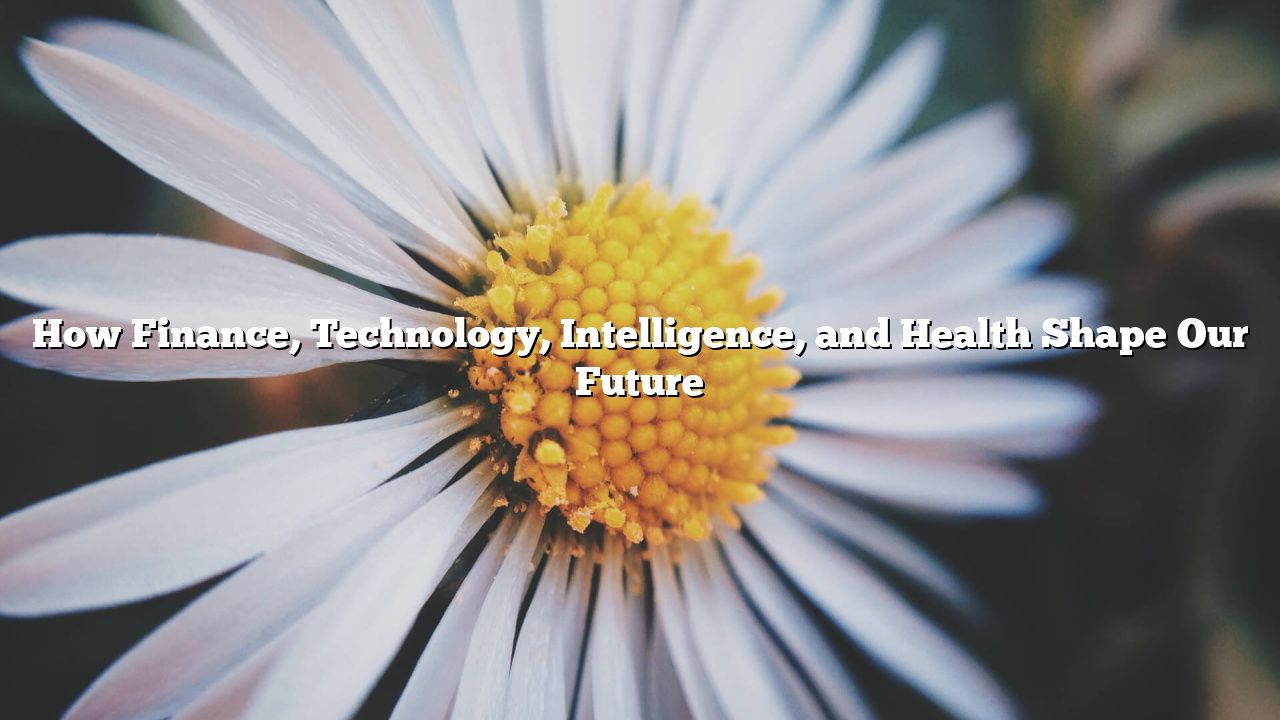—
The domains of finance, technology, intelligence, and health are key pillars that define the progress of modern civilization. As they evolve, they continue to intersect in ways that create new opportunities and challenges. This article examines how each of these fields is advancing and how they are contributing to a better future.
Finance: The Changing Landscape of Global Economies
Finance has experienced profound shifts over the last few years. Technological advancements such as blockchain, digital currencies, and AI-driven analytics have disrupted traditional financial systems. Decentralized finance (DeFi) has emerged as a powerful force, offering new ways for individuals and institutions to access financial services and invest in global markets.
Moreover, financial technology (fintech) is revolutionizing the way we interact with money. Online banking, mobile payment systems, and peer-to-peer lending platforms have made financial services more accessible than ever. These advancements have led to the rise of digital banks, which operate without the need for physical branches. Additionally, the democratization of investment through apps like Robinhood has made stock trading more accessible to the general public.
Technology: The Catalyst for Change
Technology is at the core of progress in finance, intelligence, and health. The application of AI, machine learning, and data analytics is transforming the way industries operate. In finance, technology is enhancing risk management, improving decision-making, and fostering innovation. Healthcare is experiencing a similar transformation, with AI being used to optimize patient care and predict outcomes. The influence of technology continues to expand, reshaping nearly every aspect of society.
Furthermore, the rapid growth of cloud computing has allowed businesses to store and process vast amounts of data, enabling more sophisticated analysis and decision-making. This trend is evident in industries like finance, where data analytics is increasingly used to predict trends and optimize investment strategies. Similarly, in healthcare, cloud platforms facilitate the sharing of medical records, leading to improved collaboration and better patient care.
bandar bola terpercaya : The Role of Artificial Intelligence in Shaping the Future
Artificial intelligence (AI) is rapidly becoming one of the most influential technologies of the 21st century. In finance, AI is used to create algorithmic trading systems, assess risks, and detect fraud. By processing vast amounts of data, AI can predict market trends and optimize investment strategies. In healthcare, AI-powered systems are revolutionizing diagnostics and treatment plans, helping doctors make more informed decisions. Additionally, AI is enhancing the personalization of healthcare by tailoring treatments to individual patients based on their genetic makeup.
The rise of AI brings both exciting opportunities and serious challenges. On one hand, AI can enhance efficiency and productivity in finance, healthcare, and many other industries. On the other hand, ethical issues such as privacy concerns, algorithmic biases, and the potential loss of jobs due to automation must be carefully managed. Developing a responsible framework for AI adoption is essential to maximizing its benefits while minimizing its risks.
Health: The Intersection of Technology and Well-being
The fusion of health and technology is ushering in a new era of personalized medicine and wellness. Through advancements in AI, big data, and genetic research, healthcare providers can offer more tailored treatments based on a patient’s specific needs. Wearable health devices like fitness trackers and smartwatches are empowering individuals to take charge of their health, making it easier to monitor key indicators like heart rate, activity levels, and sleep quality.
Telemedicine is revolutionizing healthcare access, enabling patients to consult with doctors remotely. This technology is particularly beneficial for people in rural areas or those with limited access to healthcare facilities. The COVID-19 pandemic accelerated the adoption of telemedicine, and its benefits are now being realized across the globe. By reducing travel time and improving convenience, telemedicine is making healthcare more efficient and accessible.
—
To conclude, the ongoing developments in finance, technology, intelligence, and healthcare will have a transformative impact on society. As these fields continue to progress, their interconnectedness will lead to more efficient, personalized, and accessible services. The future is bright, with endless possibilities for how these domains will contribute to a healthier, more sustainable world.
